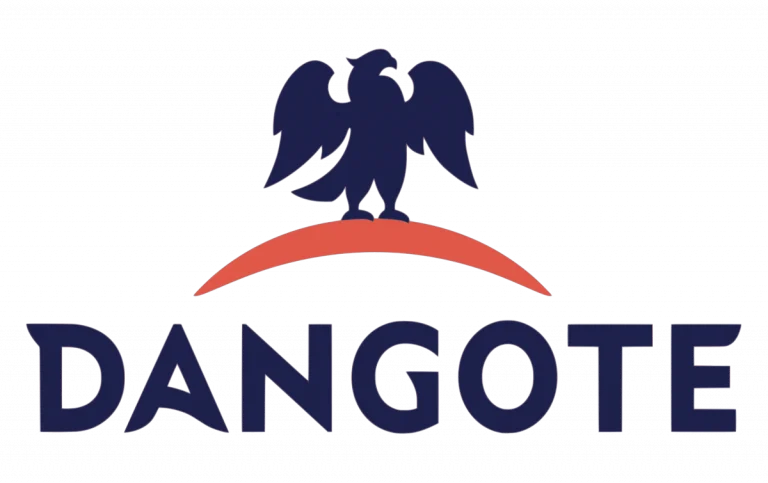Business
N17bn Debt: GTBank Drags 60 Bank Chiefs To Court

Guaranty Trust Bank has dragged no fewer than 60 top executives of 13 commercial banks to court as a pending suit between GTBank and Afex Commodity Exchange over N17bn Anchor Borrowers Programme loan lingers.
The 60 executives including the chairmen, chief executive officers, directors, and company secretaries of the 13 banks are facing contempt proceedings for allegedly failing to implement a No-Debit-Order reportedly placed on the accounts of Afex Commodity Exchange with the banks.
In suit no FHC/L/CS/911/2024 involving Guaranty Trust Bank Limited and AFEX Commodities Exchange Limited, the Federal High Court, Lagos division presided by Justice CJ Aneke signed an order for the bank chairmen, MDs, directors, company secretaries and the liquidator of Heritage Bank (Nigeria Deposit Insurance Corporation) to be committed to jail for failing to obey its May 27, 2024 ruling.
A legal notice titled ‘Order to serve notice of disobedience to order of court vide newspaper publication’ published in some national dailies including The PUNCH on Thursday, partly read, “An order granting leave to the Plaintiff Applicant to serve Form 48 (Notice of Consequences of Disobedience to Order of Court) dated 11th June, 2024 and all other forms and processes that may be issued in this contempt proceedings inclusive of Form 49 on the 1st-60st parties cited for contempt
The matter was adjourned to next Thursday.
Parties cited for contempt include Access Bank, Citibank, Jaiz Bank, Union Bank, Fidelity Bank, First Bank of Nigeria Plc, First City Monument Bank, NDIC (liquidator for Heritage Bank), Polaris Bank, Stanbic IBTC Bank, Standard Chartered Bank, Taj Bank, United Bank for Africa and Zenith Bank alongside its principal officers.
READ ALSO: Again, Clark Writes Tinubu, Demands Nnamdi Kanu’s Release
In the court ruling dated May 27, 2024, twenty banks were directed to transfer monies standing to the credit of the respondent into the AFEX’s account with GTB until the N17.81bn is repaid.
The N17.81bn loans comprise N15.77bn; the amount outstanding and unpaid, as of April 17, 2024, and the cost of recovery and incidental expenses in the sum of N2.04bn.
The court also granted an injunction allowing GTB to take over AFEX 16 warehouses located across seven states and sell the commodities stored in them, which it said were procured with the Central Bank of Nigeria Anchor Borrowers’ loan facility.
Earlier in the month, the court had served contempt proceedings against AFEX and some of its principal officers including Ayodele Balogun, Jendayi Fraaser, Justin Topilow, Mobolaji Adeoye and Koonal Ghandi.
READ ALSO: Japa: 7 Cities In US That Pay New Residents Who Move In
According to court papers, AFEX had sourced the Anchor Borrowers Programme Loan facility from GTB to provide finance for smallholder farmers registered under the CBN Anchor Borrower’s programme.
The loan was expected to be repaid from the sale of commodities. However, AFEX failed to uphold its end of the deal even after an extension.
In a statement following the interim court order, AFEX claimed that it had repaid about 90 per cent of the loan facility.
“However, a portion of the loan remains outstanding with the farmers and while we have paid out a portion out of our own purse, we remain in discussions with CBN over the outstanding amounts of the said facility,” the exchange said.
READ ALSO: How Oil Mafia Tried To Stop Our Refinery – Dangote
It also said the full value of the loan was utilised to provide input to farmers in three consecutive seasons, starting in 2020.
The exchange added that it had remained consistent with repaying the loans until economic headwinds impacted the operations of the farmers that they had disbursed the money to.
“Over 800,000 hectares of farmland were financed through the course of the programme’s operationalisation; however, significant macro and policy headwinds, including the cash crunch on the back of the Naira redesign policy, severely impacted the productive capacity and market participation of the smallholder farmers in the 2022/2023 season.
“This resulted in less than 40 cent repayment from farmers on their input loan bundles, down from our 90per cent repayment rates in the previous eight years of providing input financing for farmers. The low repayment rate ultimately impacted on our ability to refund the full value of the loan at the end of Q1 2023 and following a 6-month extension period,” AFEX added.
READ ALSO: Police Arrest Man With Eight Skulls, Human Parts In Ondo
The commodities exchange also stated that the lingering effects of the cash crunch have continued to impact farmers, who sold at below market value to get immediate cash inflows to sustain their families in the period and remain unable to pay back.
Meanwhile, AFEX has called on the Central Bank of Nigeria to activate the collateral guarantee of up to 70 per cent clause included in the Anchor Borrowers programme.
“Evidenced in the attached letters, our engagements with Guaranty Trust Bank Limited, a Participating Financial Institution in the program, as well as the apex bank have seen us highlight these limitations on the part of the defaulting farmers with suggestions being made to the CBN to activate the risk-sharing structure put in place for the program and release funds accordingly to sustain activities and allow for needed recovery efforts in our agriculture sector.
“In light of these engagements, we consider the recent steps by Guaranty Trust Bank Limited to be premature, coming in the midst of open conversations that are being had with all parties to find a path to resolution that does not unduly punish farmers, who have been the biggest hit by macroeconomic conditions that they had no control over,” AFEX concluded.
READ ALSO: Police, DSS, Guards Brigade Bust ‘Mai One Million’ Kidnapper Syndicate In Abuja Raid
CBN at the inception of the programme in 2015 said the broad objective was to create economic linkages between smallholder farmers and processors to increase agricultural output and ensure food price stability.
The Anchor Borrowers’ Programme guidelines stipulate that upon harvest, benefiting farmers are to repay their loans with produce (which must cover the loan principal and interest) to an anchor, who pays the cash equivalent to the farmer’s account.
By 2022, at least 4.8 million people had benefitted from the Anchor Borrowers Programme and the CBN in a 2023 statement said it released N1.079tn under the programme, out of which over N500bn is due for repayment.
The programme has since been discontinued by the CBN as it pivots from development financing interventions to its core duty of price and monetary stability.
PUNCH
Business
NNPCL Announces Restoration Of Escravos-Lagos Pipeline

The Nigerian National Petroleum Company Limited (NNPCL) has announced the complete restoration of the Escravos-Lagos Pipeline System (ELPS) in Warri, Delta State, following the recent explosion on the asset.
The chief corporate communications officer (CCCO) of the nation’s oil company, Andy Odeh, in a statement, said that the pipeline is fully operational, reiterating the company’s resilience and commitment to energy security.
“NNPC Limited is pleased to announce the successful restoration of the Escravos-Lagos Pipeline System (ELPS) in Warri, Delta State.
READ ALSO:Fuel Price Cut: NNPCL GCEO Ojulari Reveals Biggest Beneficiaries
“Following the unexpected explosion on December 10, 2025, we immediately activated our emergency response, deployed coordinated containment measures, and worked tirelessly with multidisciplinary teams to ensure the damaged section was repaired, pressure-tested, and safely recommissioned.
“Today, the pipeline is fully operational, reaffirming our resilience and commitment to energy security. This achievement was made possible through the unwavering support of our host communities, the guidance of regulators, the vigilance of security agencies, and the dedication of our partners and staff.
“Together, we turned a challenging moment into a success story, restoring operations in record time while upholding the highest standards of safety and environmental stewardship.
“As we move forward, NNPC Limited remains steadfast in its pledge to protect our environment, safeguard our communities, and maintain the integrity and reliability of our assets. Thank you for your trust as we continue to power progress for Nigeria and beyond,” the statement read.
Business
Dangote Unveils 10-day Credit Facility For Petrol Station Owners

The Dangote Group has announced a 10-day credit facility backed by a bank guarantee for petrol station owners and dealers, alongside free direct delivery and other incentives, as part of a new supply arrangement.
The company disclosed this in a statement posted on its official X handle on Tuesday, inviting petrol station operators across the country to register to benefit from the offer.
According to the statement, participating dealers will enjoy “a 10-day credit facility backed by a bank guarantee,” with a minimum order requirement of 5,000 litres.
“Our free direct delivery service will commence soon,” the group said, adding that the offer is open to “all petrol station owners and dealers.”
READ ALSO:Dangote Sugar Announces South New CEO
The Dangote Group further called on operators to register their stations to access the supply arrangement.
“Register your petrol stations today to benefit from our competitive gantry price,” the statement read.
The company also disclosed that petrol supplied under the arrangement will be sold at a gantry price of ₦699 per litre.
For enquiries, the group provided the following contact numbers: 0802-347-0470, 0809-324-7070, 0809-324-7071 and 0203.
READ ALSO:Dangote Refinery Dispute: PENGASSAN Suspends Strike After FG Intervention
The announcement follows a recent petrol price adjustment by the Dangote Petroleum Refinery.
The PUNCH earlier reported that the refinery reduced its ex-depot petrol price from ₦828 to ₦699 per litre, representing a ₦129 cut or a 15.58 per cent reduction.
An official of the refinery, who spoke to PUNCH Online on condition of anonymity, confirmed the adjustment, saying, “The refinery has reduced petrol gantry price to ₦699 per litre.”
The new price reportedly took effect on December 11, 2025, marking the 20th petrol price adjustment announced by the refinery this year.
Business
JUST IN: Otedola Sells Shares In Geregu Power For N1trn

Billionaire businessman, Femi Otedola, has sold his majority stake in Geregu Power Plc for N1.088 trillion in a deal financed by a consortium of banks led by Zenith Bank Plc.
The Nigerian Exchange, NGX, made this announcement on Monday.
Otedola’s Amperion Power Distribution Company Ltd reportedly held nearly 80 percent of the power generating company.
READ ALSO:N200b Agric Credit Dispute: Appeal Court Slams NAIC, Upholds First Bank Victory
With this new development, Otedola, Chairman of First Holdco Ltd, parent company of First Bank of Nigeria Plc, will reportedly now concentrate on expanding his interest in the Nigerian banking sector, although he still retains some shares in Geregu.
Otedola is said to currently own 17.01 percent of First Bank — its single largest shareholder since the bank was established in 1894.

 Headline15 hours ago
Headline15 hours agoPROPHECY: Primate Ayodele Reveals Trump’s Plot Against Tinubu

 News15 hours ago
News15 hours agoWhat I Saw After A Lady Undressed Herself — Pastor Adeboye

 Metro17 hours ago
Metro17 hours agoJoint Task Force Kills 23 Bandits Fleeing Kano After Attacks

 Politics17 hours ago
Politics17 hours agoWhy Kano Governor Postponed Formal Defection To APC

 Metro15 hours ago
Metro15 hours agoArmed Robbers Shot PoS Operator To Death In Edo

 Politics16 hours ago
Politics16 hours ago2027: Rivers APC Pledges To Follow Wike’s Instructions

 Metro15 hours ago
Metro15 hours agoGunmen Demand N200m Ransom For Kidnapped Brothers In Edo

 News15 hours ago
News15 hours agoReps Release Four Tax Acts For Public Records

 Entertainment15 hours ago
Entertainment15 hours agoAnthony Joshua Returns To UK In Private Jet

 News17 hours ago
News17 hours agoNiMet Forecasts Three-day Dust Haze, Sunshine
































